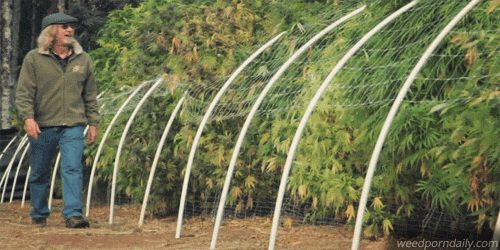(SacBee) Sacramento is closer to becoming a regional hub for commercial marijuana production, but significant hurdles remain before the city flowers with industrial pot gardens. City Council members voted 5-3 Tuesday to allow licensed cultivation within city limits. But it will be months before permits are issued and the city still must establish fees for grower licenses. The city also needs to flesh out its proposed “neighborhood responsibility plan,” in which cultivators would pay fees to cover services that benefit surrounding neighborhoods. Two council members, Allen Warren and Eric Guerra, lobbied for that program because they are concerned how cultivation will affect their districts, each with concentrations of warehouses suitable for growing. “We had a lot of cultivators say they do want to be good neighbors and contribute to the overall wealth of the community, and we want to take advantage of that,” said Councilman Jay Schenirer, who crafted the cultivation ordinance, arguing it was a necessary step to ensure the city properly regulated the marijuana industry while protecting communities. Such fee amounts will be based on an upcoming study examining the effects of pot operations on policing demands, property values and quality of life, among other factors. “You may have folks who are not interested in being a neighbor to a cultivation site,” Schenirer said. “So how does that (cultivation) affect the neighborhood? You may have property values or rents that take a dramatic turn. That’s what we want to look at.” Until a fee is set, the City Council voted to allow cultivators to voluntarily pay a percentage of gross revenue to offset neighborhood impacts. But that proposal is stirring debate over whether the city is attempting to impose a special tax, which could only occur with a public vote and passage by a two-thirds majority. Under the plan approved Tuesday, Sacramento will allow conditional use permits for cultivation of up to 6,400 square feet of plants in commercial zones. Permits for up to 22,000 square feet of plants could be issued in industrial zones. All cultivation must occur in fully enclosed buildings more than 600 feet from schools, and production can’t be visible from streets, sidewalks or other public spaces. Approximately 200 operators already claiming to be marijuana cultivators have registered with the city in hopes of getting a formal business permit to continue. Another 800 interested applicants have contacted the city. Any businesses approved will be subject to the city’s standard 4 percent business tax plus licensing fees and the planned neighborhood impact fee. City officials estimate cultivation could bring at least $2.2 million in annual revenue, depending on how many licenses are issued and the size of the commercial gardens. The city ordinance came less than a month after California voters approved Proposition 64, which allows for the recreational use of marijuana. The vote also came after a recent regional cannabis business analysis prepared by the University of Pacific’s Center for Business and Policy Research.
Cannabis News Weeducation
Sacramento City Council approves hotly debated marijuana cultivation ordinance
on November 24th, 2016

